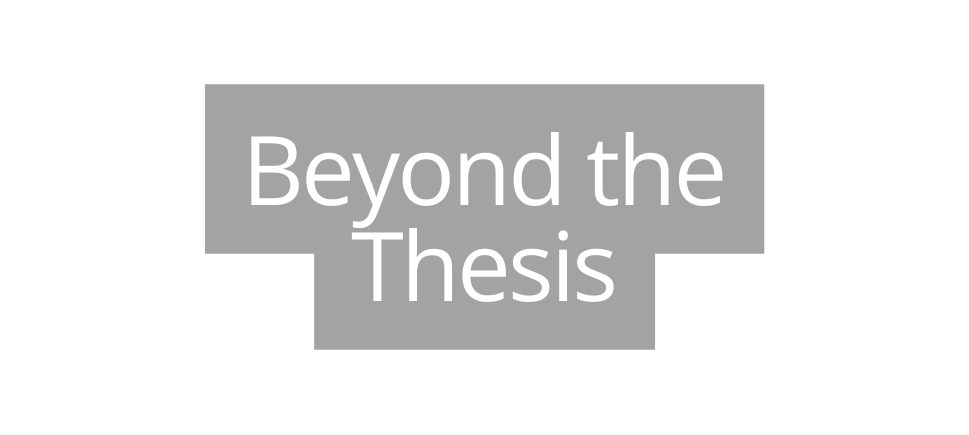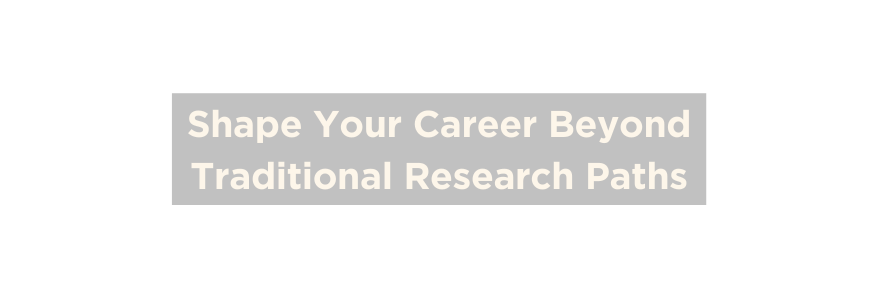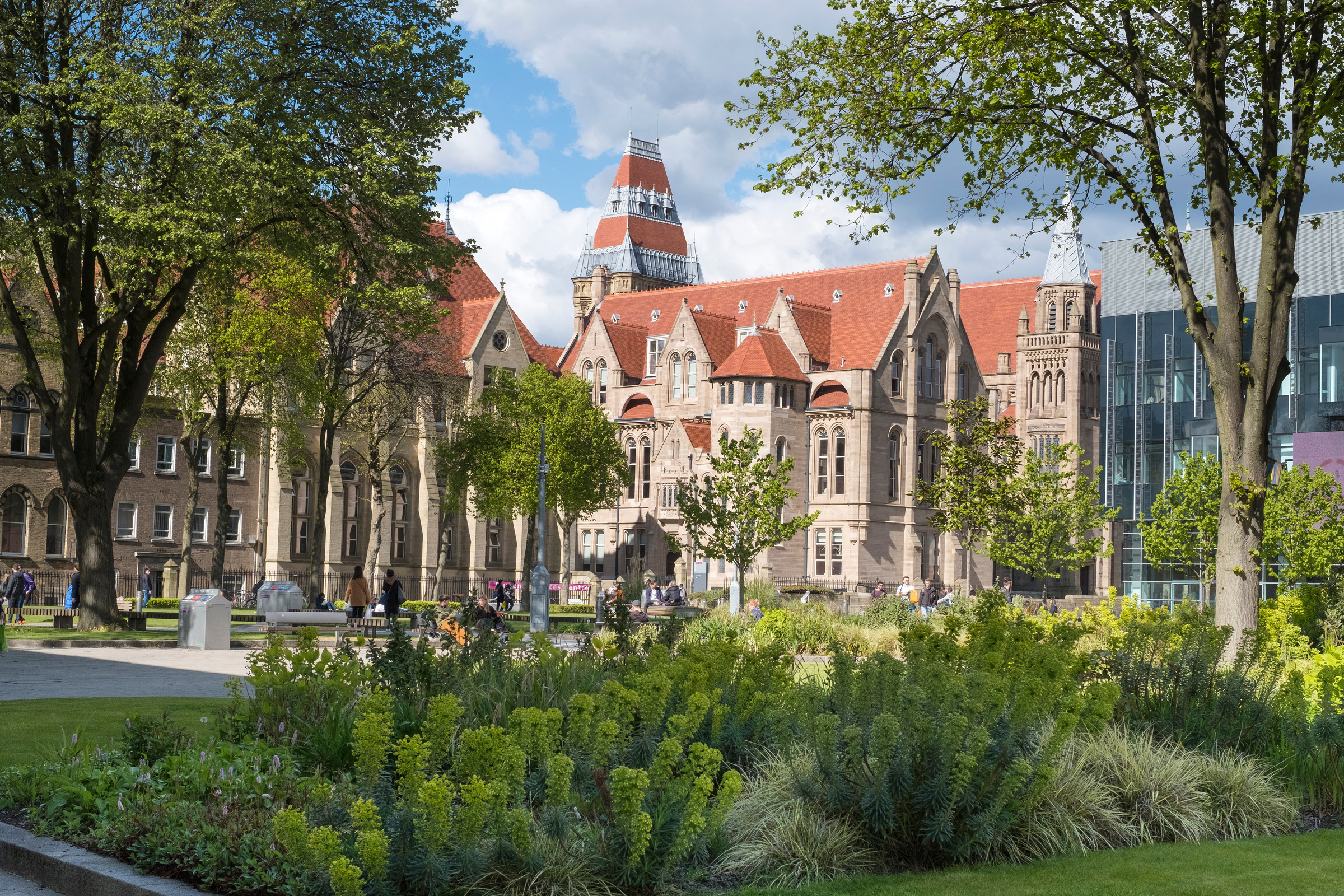
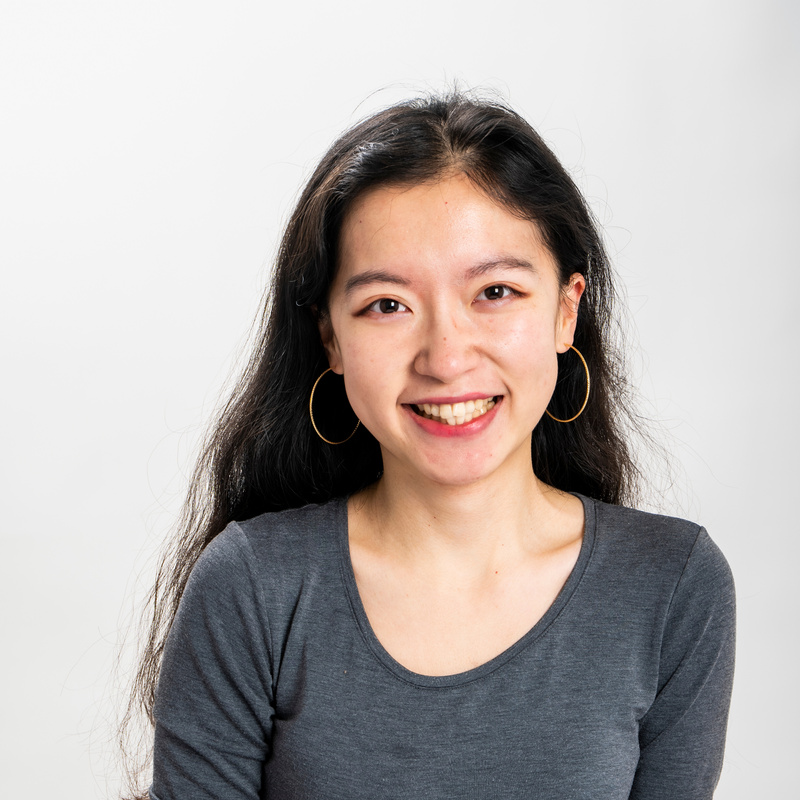
The Art of Juggling Roles in Fintech, Academia, and Entrepreneurship
Alumni Profiles
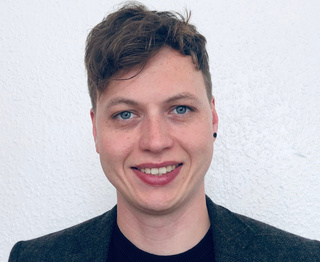
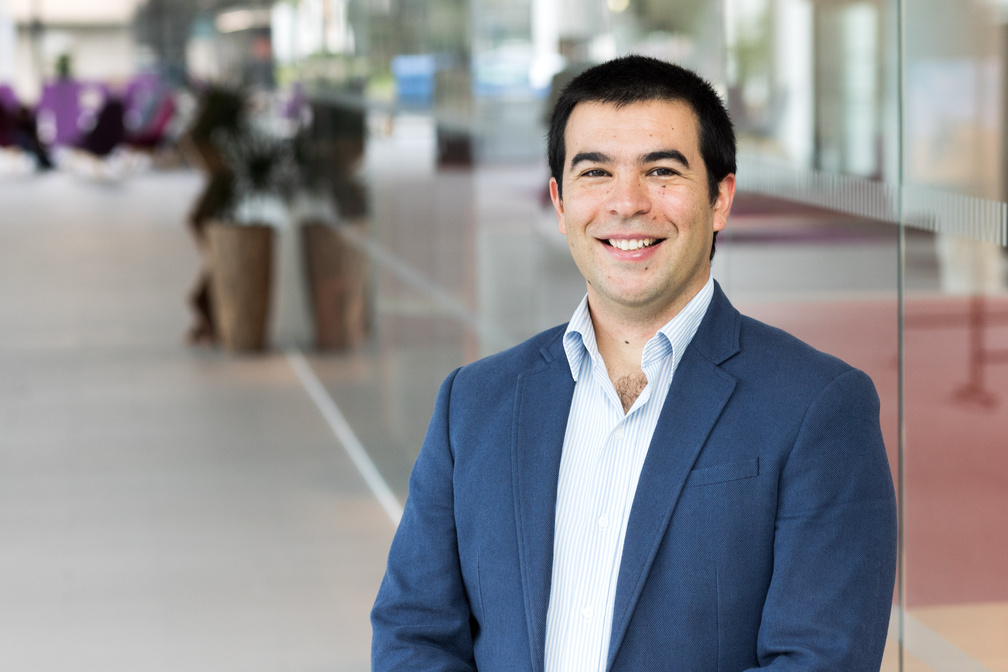
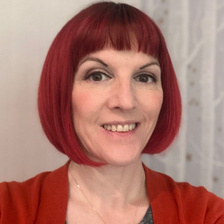
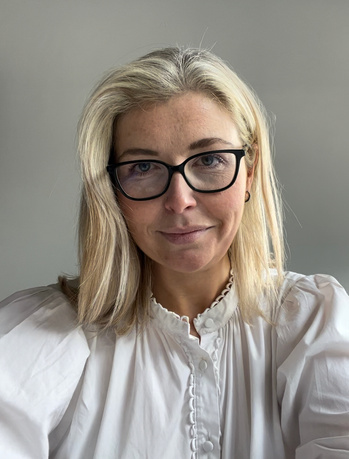
Innovating at the Crossroads of Music and AI: How to Become a “Guru”
From Banking to Academic: Economic Research in a Different Context
Shaping Change From Within: Humanities Research to Research Development
Made in Manchester: From Academia to Entrepreneurship: Crafting Personal Brands
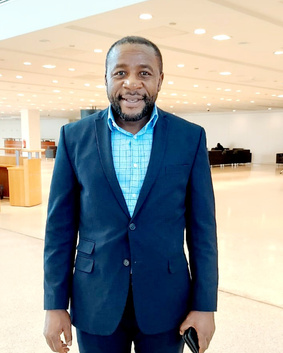
From Environmental Catalysts to Industry Leadership

Global Journey: From International Relocation to Samsum
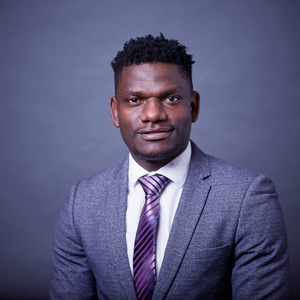
Shaping the Future of Health Economics: An Alternative Approach to Connecting Healthcare Research with Real-world Impact
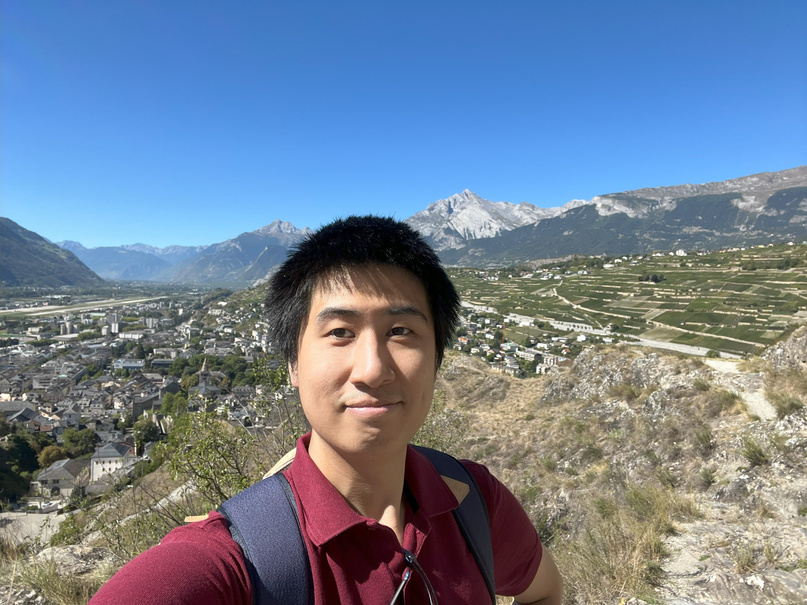
Jumping from Industry to Academia and Pioneering Sustainable Solutions in Chemical Engineering

Beyond the Binary: From Systems Engineer to Product Owner

The Evolution of a Management Pathway: From Expert in Software Engineering to Management
Ernestina Zhu
Ernestina's Odyssey: The Art of Juggling Roles in Fintech, Academia, and Entrepreneurship
Ernestina's career is a tapestry of diverse threads, each a distinct chapter in a story of curiosity, adaptability, and innovation. It begins in the bustling classrooms of New York and China, where Ernestina pursued a joint degree in digital arts, laying a foundation that would serve her well in the ever-evolving world of technology. But her academic journey was far from linear. From the East to the chilly climes of Edinburgh, she delved into digital sociology, adding another layer to her already rich educational background.
In her current chapter, Ernestina isn't just a Digital Sociology PhD student at the University of Manchester; she's also a visiting lecturer at the University of Law; a tutor, and a supervisor at Manchester Metropolitan University. But academia is just one facet of her life. Her entrepreneurial spirit has led her to run companies and hold influential positions in the industry. Her story is a testament to the power of a diverse skill set and the willingness to venture into uncharted territories.
The turning point in her career came unexpectedly when breaking news emerged: a digital painting had sold for a staggering $69.3 million at a revered British auction house. This event was not just a headline; for Ernestina, it was a siren call to the world of NFTs. Before this revelation she was already trading NFTs, this moment marked a shift in her career trajectory, steering her towards new ideas and opportunities, blending her artistic background with a newfound interest in Fintech.
Ernestina's ability to transfer her academic expertise to the industry is noteworthy. Researching NFTs and bitcoin, she did not just stay confined to the theoretical realms but ventured into practical applications, generating revenue, and bridging the gap between academia and industry. She understands that while academia demands specialisation, the industry seeks specific skills for specific tasks - a distinction she now navigates with ease. To achieve this, one needs to be open to new experiences and ideas, as skillsets that facilitate career and personal growth often come from unexpected opportunities and the willingness to explore them.
“It's always like a constant realization, an epiphany... Almost every year, I have new ideas or things coming up. Life is unpredictable, and embracing new opportunities is key.”
She believed that there is a distinction between the objectives and approaches of business and academia.
Working at the intersection of business and academia provides her with opportunities to gain a deeper understanding of where her enthusiasm lies in her research and her career. She wants to explore the wider world of fintech: NFTs, virtual currency, and blockchain.
"In business, if you can generate money, that brings benefits to everyone on the table. But academia works differently. For business plans, we ask, 'How do you make money through this?' It's straightforward. In academia, the problems addressed are often abstract. The business world is more focused on practical outcomes and revenue generation."
Ernestina finds joy in her role as a tutor, too. It's in this capacity that she feels most alive, engaging with students, sharing their life stories, and guiding their career paths. She believes that pushing boundaries and encouraging her students to explore careers that did not exist a decade ago, such as being a professional TikToker, is not only a better way for students to discover their career pathways but also a means for her to broaden her horizons.
Ernestina's entrepreneurial journey adds another exciting chapter to her story. It began in Beijing, where she co-founded an event-organising company, working with academics and diplomats. Her ventures then took her to the U.S., where she dived into digital marketing. These experiences underline her adaptability and her flair for working in varied cultural and business landscapes.
Her advice to aspiring entrepreneurs is drawn from her own experiences:
“Use university resources, understand market dynamics, and master the art of pitching to investors.”
In her meticulously planned day, Ernestina balances her professional commitments with personal passions like horseback riding and bouldering, finding her equilibrium in the blend of work and leisure. Looking ahead, Ernestina sees herself continuing in Fintech, chasing happiness and relaxation despite the expected busyness.
Ernestina's journey, marked by continuous evolution, is a beacon for those seeking to carve out a unique path in their careers. It's a narrative of embracing change, harnessing diverse talents, and the joy of imparting wisdom, all woven into the vibrant tapestry of her life.
Lessons to take from Ernestina's journey:
- Learn to diversify your skillset. By embracing new experiences and ideas, valuable skills for both career and personal development often arise from unexpected opportunities and a willingness to explore them.
- Pushing boundaries and exploring emerging career paths: Keep pace with it, and if possible, stay ahead of the curve.
Chris Rhodes
Innovating at the Crossroads of Music and AI: How to Become a "Guru"
Chris is a Lecturer in Digital Media Production at University College London (UCL) Knowledge Lab, a Visiting Research Fellow at the University of Manchester, and the founder of Guru AI—a pioneering start-up that harnesses AI technology to revolutionise music education. His journey is marked by an unwavering commitment to explore the intersection of musical creativity and technology, and his entrepreneurship fits into this dialogue.
Chris' academic path began with a BA in Music at Lancaster University, followed by his master’s and PhD in the field of Electroacoustic Music Composition at UoM. His research focused on composing music via emerging wearable technologies which measure biometric information. During his final PhD year, he found a fractional lecturer position at UCL, effectively juggling the demands of academia and his burgeoning interest in commercialising his research. Post-PhD, Chris' professional journey continued at UCL, where he assumed the role of a lecturer. Concurrently, he embarked on an entrepreneurial journey by founding Guru AI while maintaining one foot in the academic sphere.
This unique career choice is characterized by a continuous process of learning and adaptation. Guru AI, Chris' brainchild, has undergone significant evolution since its inception. Initially conceived as a platform for personalised music education using AI, Guru AI seeks to make music education accessible and engaging. It aims to employ smartphones and wearable devices, like smartwatches, to provide individualised feedback for learning the guitar, ultimately bridging the gap in music education, especially in underserved communities.
"One of the most important lessons I learned is that most problems can be solved; it's just about how you approach them and the resilience you show in solving them."
The motivation behind commercialising his idea was rooted in Chris' observations of the deficiencies in music education, particularly in disadvantaged socioeconomic areas. As a musician and guitar tutor with years of experience, he recognised the pressing need for affordable and accessible music education. Thus, Guru AI emerged as a synergy of his PhD research and his passion for making music education inclusive. Chris first spoke to his PhD supervisor, Professor Climent, who has helped many PGRs with start-ups. Chris learned that there were resources at UoM available that helped with the commercialisation of his idea. He went to the Masood Entrepreneurship Centre and talked to Lynn Shepherd, a director of the centre. She was incredibly helpful, becoming a mentor who helped construct the initial business frame and a proposal to get preliminary funding. While Guru AI is in its initial start-up phase, Chris advises aspiring entrepreneurs to share their ideas with as many people as possible. This open engagement allows for critical evaluation and iterative refinement based on feedback and discussions.
In the daily rhythm of his life, Chris dedicates himself to developing Guru AI’s software and managing funding aspects. As a part of a small team, each member takes on multiple roles, making his days a mix of coding, product development, and strategic planning. Looking back, coding seems to be a unique choice among his music PhD cohort, as it is not part of his PhD training plan. Chris realised that he needed to culture and polish his coding skills and evolve to meet specific challenges from Guru AI. Starting with a self-taught approach, he soon joined two formal Python modules at the UoM that could be supplemented and integrated into his PhD plan.
Beyond entrepreneurship, Chris is also committed to guiding his students toward discovering their career interests. He combines their expressed interests with his assessment of their strengths to help them realise their potential as creators and artists, directing them toward opportunities where they can excel. Operating at the crossroads of academia and industry, Chris finds it to be a harmonious blend of both worlds. UCL's emphasis on collaboration with industry creates an environment that balances academic expertise with the practicality and dynamism of industry.
“There are a lot of transferable skills... also say take it easy, don't work all the time, maintain a good work-life balance, make sure you exercise and sleep well... it's going to improve your experience... don't just think that a PhD student should be in the lab, or wherever you are working, until the early hours every night”.
Chris has learned the importance of work-life balance through his PhD journey. Burnout from excessive work led to a realisation that taking weekends off, not working late into the evening, and prioritizing self-care improves productivity and well-being. To aspiring PGRs, Chris advises recognizing the transferable skills they develop and maintaining a healthy balance between work and life. For PGRs in the arts seeking to venture into entrepreneurship, Chris encourages embracing their creativity and exploring non-traditional funding avenues available in the social sciences and humanities. He asserts that creative perspectives are key assets in entrepreneurship.
Reflecting on his journey, Chris imparts wisdom to his younger self—focus on problem-solving, cultivate resilience, and adaptability. These qualities are crucial in the initial stages of a PhD. Regarding the potential of general AI in his industry and career, Chris recognizes its immense potential to speed up tasks like coding:
“I thought creatively, and I was willing to do artistic experiments... as big language models like GPT automate more and more things, they can't quite get their hands on creativity, so I think actually becoming a critical reflective creative practitioner has become more important”.
Lessons to take from Chris' journey:
- Aspiring entrepreneurs should aim to share their ideas with as many individuals as possible because open engagement enables critical evaluation and iterative refinement through feedback and discussions.
- Reassess the resources within your reach. If there's anything vital for your dream career, consider beginning with a self-taught approach like Chris did. Then, explore whether UoM or other platforms offer relevant resources to support you. For instance, Chris enrolled in two formal Python modules at UoM, which complemented and integrated well into his PhD plan.
- Burnout from excessive work led to a realization that taking weekends off, not working late into the evening, and prioritizing self-care improves productivity and well-being.
- Creative practices and critical thinking are becoming assets in a world which approaches general artificial intelligence, capable of automation - especially where entrepreneurship is concerned. Consider looking beyond ‘hard skills’ like coding and focus on filling the gap.
Francisco Pinto Avalos
From Banking to Academics: Economic Research in a Different Context
Now a Lecturer in Economics at Cardiff University, Francisco's journey as a postgraduate researcher was uniquely shaped by his prior career at the Central Bank of Chile, where he dedicated more than five years before beginning his doctoral journey.
The majority of finance and business undergraduates tend to enter the workforce immediately after completing their bachelor's degrees rather than pursuing graduate studies:
In contrast to others in his field, Francisco embarked on his research journey as an economist at the Central Bank of Chile in 2010 following the completion of his undergraduate and master's degrees from the University of Santiago.. Feeling drawn to the cutting-edge knowledge in Financial Economics, he decided to continue his postgraduate studies in Manchester, where he completed another master's degree followed by a PhD in Finance. Post-PhD, Francisco embarked on a career as a lecturer, initially at Manchester Business School and later finding his academic home at Cardiff University.
Apart from his thirst for knowledge, the transition from the world of banking to academia was a long-term and conscious choice. His time at the Central Bank had given him valuable practical insights, but he felt a strong pull towards exploring the subject more thoroughly through academic research and study. This move allowed him to deepen his understanding of finance and explore new intellectual challenges as a researcher.
Reflecting on his central banking days, Francisco's work environment was marked by competitiveness and the pursuit of excellence. It was a dynamic setting that motivated him and his colleagues to strive for distinction and scholarships. The scholarship allowed whoever excelled among their peers to further their studies. Francisco seized this chance. For him, the difference between being a researcher in a bank and in a university lies in the focus and application of research. In a central bank, research is often directed towards practical financial issues and market trends, emphasising applied research that can influence banking policies and strategies.
"It's rare to find someone who has studied for eight years, from undergraduate to a PhD and then transitions to the business sector. Only a fraction of individuals of PhDs choose to enter the private sector."
In contrast, university research typically allows for more theoretical exploration, focusing on broader economic and financial concepts and contributing to academic knowledge in the field. This academic environment provides some degree of freedom to pursue in-depth, innovative research that extends the boundaries in the field of economics and finance.
Francisco's advice for finance PGRs seeking non-academic roles is to focus on building a solid foundation in research and to embrace opportunities for academic growth. Francisco also suggests that students should aim to stand out from their peers by showcasing their unique contributions and insights in their research area.He notes that salaries in the financial sector tend to be significantly higher than in academia, with a substantial difference in similar positions. In the realm of non-academic finance-related roles, having a PhD can set certain salary expectations. However, it can also present the challenge of being perceived as overqualified.
“Choosing academia over banking was a choice of my passion over pay checks."
Know yourself and what you want before pursuing your PhD—Francisco said that a PhD to him is a testament to his dedication to research the intellectual freedom it offers and the joy of teaching. Francisco noted that for most positions in the private sector, undergraduate and master's students can be qualified. But if you want to do research-related work, no matter in academia or industry, postgraduate experience is a must.
For academic job seekers, Francisco emphasizes the importance of networking, research publications, and conference presentations. Making one's work known and establishing connections within the academic community can enhance job prospects. For aspiring lecturers, Francisco underscores the importance of building a strong research profile, getting work published, and actively engaging in academic communities.
"Considering my previous research experience before my doctoral studies, I discovered that I began my PhD in a more mature manner compared to my fellow PhD colleagues."
Francisco believes that many skills are highly valued by both industry and academia. Transferable skills, such as proficiency in coding and quantitative skills in economics, have proven to be indispensable. Furthermore, his ability to effectively communicate complex ideas to audiences from diverse backgrounds, a skill honed during his PhD, has played a pivotal role.
Balancing work and personal life can be challenging, especially with family responsibilities. However, Francisco appreciates the decent work-life balance offered in academia, which facilitates the effective management of professional and personal commitments.
Driven by a deep-seated desire to complement his practical research experience with academic rigour, Francisco's career trajectory exemplifies many possibilities for finance PhD holders.
Lessons to take from Francisco’s journey:
- Consider how you want to engage with a tenet of your skillset when choosing your career.
- For finance PGRs seeking non-academic roles, focusing on building a solid foundation in research and embracing opportunities for academic growth are vital.
- For academic job seekers, networking, research publications, and conference presentations are three essential tools that bolster your chances of success in the job hunt.
Laura Breen
Shaping Change from Within: Humanities Research to Research Development
Laura is responsible for steering the strategic development of research projects and leading activities to maximise their non-academic impact as a Research Development and Impact Manager. She has a remarkable career path in higher education, museums, and the public sector. Her storytelling ability and her talent for uncovering and presenting evidence of research impact even earned her the moniker ‘Sherlock Holmes'.
Hailing from Manchester, her journey started with an Art Foundation and a BA in History of Design at Manchester Metropolitan University. Subsequently, she delved into the museum sector for seven years, working at institutions including Tameside Museums, Bolton Museum and The Potteries Museum and Art Gallery, as well as working as an editor at City Life magazine. She pursued a part-time Master's at the University of Manchester alongside this work, partly funded by the Arts and Humanities Research Council (AHRC), with a placement as a researcher on the Revealing Histories project at the People’s History Museum. Laura's academic pursuits reached their pinnacle with a PhD in Museology and the Arts (Ceramics) as part of the AHRC-funded Ceramics and the Museum project from the University of Westminster. The project included extensive collaboration with museums and ceramic practitioners, and she later published ‘Ceramics and the Museum’ - a book based on her research.
Laura's debut in the world of research impact, quite a new field, occurred through involvement in the 2014 Research Excellence Framework (REF) in the final year of her PhD. REF assesses the quality of research at universities in the UK, and Research England subsequently allocates Quality Related funding based on these assessments. The assessment of impact, focused on demonstrating the non-academic benefits of research, became part of REF whilst she was completing her PhD. Due to her background in public engagement in museums, Laura was familiar with evidencing public benefit, so the university extended an offer for her to remain with them for a year to assist in preparing impact case studies and narratives for the REF submission. They later provided funding to retain her as a Research Associate to support preparations for the subsequent REF (2021).
Whilst writing up her PhD, she joined the Medical Practitioners Tribunal Service as a project support officer on a large change project with the General Medical Council (GMC), where she identified gaps in their processes. The organisation created an operational support position uniquely for Laura based on this.
he worked as a sessional lecturer at Manchester Metropolitan University alongside this role. Subsequently, she worked at the University of Huddersfield, as their first Impact Support Officer, supporting fellow researchers in the arts and humanities. Her role focused on generating and evidencing the non-academic benefits of research across six departments.
Laura has been actively involved in the field of research impact across many disciplines ever since, and was Impact and Engagement Manager for Health and Education at Manchester Metropolitan University for four years, supporting their activity to embed impact and deliver REF2021. In this rapidly expanding field, specific skills carry significant importance, including fact-finding, networking, and interviewing. These abilities are invaluable in roles that demand meticulous planning, the synthesis of ideas, and effective execution. Her enthusiasm for gathering evidence and skilful storytelling led to her being affectionately referred to as "Sherlock Holmes" by a researcher she worked closely with.
"I'm always interested in what other people are doing and how we might work together...Planning and bringing ideas together and making sure things happen.”
“Narrative in impact is crucial. It involves telling a story that conveys the essence of people's research, highlights the gaps it addresses, and showcases the societal benefits it brings...so my job is to help the researchers to build their stories up.”
In her current role in the research strategy team at UoM, Laura's days are characterized by coordination and collaboration across various faculties, working closely with research development and impact teams. Her role involves facilitating discussions, connecting ideas, and ensuring projects come to fruition – a testament to her organizational prowess. Communication and networking are other key aspects of her work. She has been successful in engaging with diverse groups, from researchers to professionals in different fields, and has used these skills to build impactful projects and initiatives.
Time management is an important lesson she learned during her postgraduate study and still finds useful in her current role. Supporting artists and creating web content was part of her PhD and she became adept at multitasking, balancing her assistant work and research daily. The ability to build relationships with a wider range of people is another key transferrable skill.
“A PhD can be quite an isolating experience, but you tend to build a cohort of fellow PhD researchers...That ability to connect is important to me in my professional role too.”
Laura's advice for aspiring arts professionals is to recognise the transferable skills gained during their academic journey and to remain open to changing career trajectories. For Laura, it's not about relentlessly pursuing one specific path, its thinking about personal values, what drives you, and exploring career opportunities that allow you to apply and develop your skills in those areas. She highlights the potential for growth in roles related to impact management, with annual pay progression.
Laura's career path has led her from academic settings to roles that bridge the gap between academia and real-world needs and foster change. In this multifaceted context of impact, having a strong academic background, often including an advanced degrees such as a PhD, can prove invaluable. Equally essential is a genuine passion for driving research impact and effecting meaningful change. Laura's journey serves as an inspiration to those aspiring to forge impactful careers within and beyond academia, highlighting the potential for individuals to shape positive transformations where academic research meets real-world demands.
Lessons to take from Laura’s journey:
- Proficiency in fact-finding, networking, and interviewing is crucial in rapidly expanding fields, particularly for roles requiring meticulous planning, idea synthesis, and effective execution.
- Effective time management, developed through experiences like postgraduate studies and project-based work, is a valuable skill applicable to all, facilitating multitasking and balancing various responsibilities.
- Prioritizing networking fosters opportunities for career growth.
- Recognise the transferable skills gained during your academic journey and remain open to changing career trajectories.
Sam Lynch
Made in Manchester: From Academia to Entrepreneurship - Crafting Personal Brands with Dr Sam Lynch
Sam Lynch's story is one of transition from academic achievement to entrepreneurial success. Her voyage commenced at the University of Stirling, where her first forays into marketing sparked a passion for consumer behaviour and branding. This was the beginning of a lifelong pursuit which ultimately saw her launch her own business helping high-achieving women to build their personal brand strategies.
Marketing has been a constant thread throughout Sam’s career, from her undergraduate studies in Scotland, and her industry career as a commercial marketer, to taking the leap as a mature student at UoM to pursue an MSc and PhD to explore marketing and consumer behaviour in fashion.
The PhD led to a series of academic roles focused on marketing and consumer behaviour which saw Sam becoming an academic Head of Department within a university business school. As part of her research endeavours Sam applied her personal branding knowledge to raise her profile as an Early Career Researcher and to support students on their journey towards industry. It was a game changer for her; she found herself sparking conversations with researchers from all over the world, which propelled her work and profile.
Sam began informally helping academic friends and, through recommendation, women outside of academia reached out for career and business support. Sam realised her unique experience as an academic, mother, business innovation lead and marketer could help other women towards their own professional success.
Despite not coming from an academic background, the encouragement and support from UoM faculty members within the fashion team were crucial to Sam’s development. Experiencing this support first-hand has inspired Sam to pay it forward by reinvesting a portion of her business earnings into supporting students through hardship funds at various universities.
“I stepped out of the industry to return to university which led to a PhD scholarship. This was on also on the same day I was offered a job back in the industry. My house was packed up and I was ready to head to London, but I took a risk and decided to go for the PhD route, not knowing where it might lead, and I have never looked back.”
“The key aspect of my PhD journey was that it truly gave me the confidence and resilience to envision a larger scope for my career and ambitions. This was a crucial steppingstone for me."
At the core of her personal brand business, Sam provides bespoke coaching, knowledge exchange support and business strategy sessions. Her academic research skills enable her to design bespoke pathways for her clients. As an entrepreneur, Sam oversees the day-to-day operations of her business, making multiple decisions ranging from strategy to admin. Her work has seen her deliver keynotes internationally, most recently at Johns Hopkins University in the US and her clients span the UK, Canada, the USA, United Arab Emirates and Europe.
For Sam, the entrepreneurial path has been about more than just business; it is about personal growth and fulfilment. The intellectual freedom of research and enquiry was something she has held onto through her entrepreneurial journey. Her story is a celebration of this freedom and her commitment to lifelong learning and growth.
"My No.1 tip for any postgraduate would be to ensure you follow up with everyone you come into contact with. You just don't know where those next opportunities might come from."
Lessons to take from Sam's journey:
- Consistently treat everyone with kindness. Having done everything from scrubbing floors in a hotel to running a company Sam says be kind to those you meet regardless of their role, position or status because one day it might be the same person offering you a job. This practice not only reflects your professionalism but also demonstrates your understanding of effective conduct in the business world. By embodying this approach, you showcase to organizations and employers your commitment to fostering positive interactions with clients and colleagues, ultimately enhancing your reputation and professional relationships.
- Ensure that work-life balance is a central tenet of your career. As a working mother, Sam has learned to adopt a work-life balance philosophy that goes beyond conventional boundaries, called work-life flow. Taking inspiration from pioneering psychologist Mihalyi Csikszentmihalyi best known for flow theory - in which people are immersed in the joy of their work or activity - rather than rigidly separating work and personal life, she believes in recognising and prioritising her needs dynamically and carefully discerning when to invest effort and energy.
- Prioritise networking as a crucial aspect of career advancement. Just like in Sam's career, opportunities often arise from relationships rather than advertised positions. Take the initiative to network with postgraduate researchers and other professionals in your field. Follow up with contacts diligently and remain open to potential opportunities that may arise. Building and nurturing your network can significantly enhance your career prospects and open doors to unforeseen opportunities. “Look at how you can serve others first.”
Aaron Akah
Aaron: From Environmental Catalysts to Industry Leadership
Aaron's story shows how education and combining different fields of study can have a worldwide effect. Born in Cameroon, he travelled across continents for his education and now has a successful career at Saudi Aramco, one of the world's largest integrated energy and chemicals companies, working on sustainable projects.
Aaron started his higher education at the University of Buea in Cameroon, where he earned both his bachelor's and master's degrees. He then moved to the United Kingdom on a Commonwealth Scholarship to attend UMIST, now part of the University of Manchester, where he pursued a PhD in chemical engineering with a focus on environmental technology. His research aimed at creating catalysts to change ammonia into harmless nitrogen and water.
After completing his PhD, Aaron continued in academia at the University of Manchester, first as a postdoctoral researcher and then briefly as a lecturer in Chemical Engineering. Eventually, he shifted to industry by joining Saudi Aramco, seeking to apply his research findings in a practical setting.
The University of Manchester helped prepare him for job interviews with training and certifications like the Certified Associate Project Manager from the Project Management Institute. These programs, which improve presentation and public speaking skills, are useful for success in both academic and industry settings. At Saudi Aramco, Aaron hoped to see his work on catalysis and environmental technology used in real-world applications. His job involves planning, holding meetings with stakeholders, and developing new technologies to convert crude oil and plastic waste into useful chemicals and fuels. He also trains and mentors young scientists, contributing to Saudi Aramco's goals of sustainability and talent development.
The career landscape for Engineering PhD holders in Aaron's field is rich with possibilities. Beyond academia, there are opportunities in the R&D departments of large corporations, particularly those dedicated to environmental solutions and sustainable technologies. Academic roles also beckon, offering avenues for research and teaching.
aron points out the key differences between academic and industrial research. Academia often deals with theory and exploration, while industry focuses on practical use and making money. In his job at Saudi Aramco, he connects academic ideas with real-world industrial uses. Skills from Aaron's PhD, like making, analysing, and creating catalysts, are still useful in his job and meet industry needs well.
His move to Saudi Aramco happened by chance, helped by his interactions with international students, including those from Saudi Arabia. He was attracted to the company's range of projects, not just in oil, and its emphasis on new ideas and environmental care. Having a postdoctoral background doesn't mean you're too academic for industry. For Aaron, it shows a deep commitment to research, which is highly valued.
What he enjoys most about his work is mentoring new scientists and seeing the real-world impact of his research. Helping his mentees grow and applying his studies practically gives him great satisfaction.
“PhD graduates tend to earn well in the industry, especially in roles that value their deep knowledge. They link pay to how well you do, with chances for extra pay and raises for good work.”
His move to Saudi Aramco happened by chance, helped by his interactions with international students, including those from Saudi Arabia. He was attracted to the company's range of projects, not just in oil, and its emphasis on new ideas and environmental care. Having a postdoctoral background doesn't mean you're too academic for industry. For Aaron, it shows a deep commitment to research, which is highly valued.
“PhD graduates tend to earn well in the industry, especially in roles that value their deep knowledge. They link pay to how well you do, with chances for extra pay and raises for good work.”
What he enjoys most about his work is mentoring new scientists and seeing the real-world impact of his research. Helping his mentees grow and applying his studies practically gives him great satisfaction.
Aaron has climbed the career ladder within Saudi Aramco, reaching a senior level in about ten years, and he aims to become a principal scientist or engineer.. Progress in his career is based on performance. It took him around ten years to move from a starting position to a senior level, and he's aiming for the next step with continuous hard work. Aaron advises PhD graduates looking at industry roles to think about how their skills can apply broadly. He stresses the value of skills gained during a PhD for various industry jobs.
Lessons to take from Aaron’s journey:
1. Postdoctoral Value: Postdoctoral experience can enhance your appeal in the industry by showcasing your dedication to research.
2. Company Alignment: Choose companies that match your values, especially if you're interested in innovation and sustainability.
3. Practical Focus in Industry: Shift your mindset to prioritize practical applications and the commercial impact of your work.
4. Performance-Based Advancement: Understand that progression in the industry is closely tied to your performance and contributions.
Mutasem Hamdan
Global Journey: From International Relocation to Samsung
Mutasem describes himself as a “Multi-skilled Solutions Architect” with a career that is a fusion of academia and industry. He currently holds the position of a 6G Researcher focusing on Communication AI at Samsung. His educational journey started with a bachelor's in electrical engineering in Jordan in 2004. After a brief stint in the industry, he pursued a master's degree at Lancaster in 2010 and later started his PhD in the same subject. He believes that it is important to refresh skills to stay aligned with evolving technology trends.
In career choices, individuals often find themselves at a crossroads, and Mutasem was no different. Although global relocating brought a set of challenges, including adapting to a new country and its unique dynamics, it proved to be rewarding for Mutasem. In the initial stages of his career, he worked as an engineer for a prominent telecom operator, Zain, in Jordan. It was here that he first encountered the importance of being adaptable. A pivotal moment arrived when he was presented with an opportunity to relocate to Algeria and become a supervisor overseeing a team. Despite a higher salary and the prospect of developing a broader skill set, he approached this decision methodically. He weighed the financial benefits, the potential for skill enhancement, and the allure of a new adventure. He decided to embrace this opportunity, and it marked the beginning of a transformative journey. He excelled in this new role, quickly demonstrating his leadership capabilities as he transitioned from a purely technical role to a managing position.
The next significant opportunity came when the general manager within the same company sought new horizons in Bangladesh. The manager, who knew him well, presented this opportunity but questioned his ability to adapt to the drastic changes in language, climate, people, and work dynamics. The response was resolute - an eagerness to embrace the challenge. The encouraging words were, "Just get yourself on a plane and come." In less than four days, Mutasem embarked on his journey to a new country and seized this opportunity as a platform to negotiate improved terms. The role not only promised better financial rewards but also involved managing entire departments.
Being an international professional has now become his new norm. In 2008, he embarked on a career as a project manager at Tata Communications in India, where he observed the evolving landscape of technology, with a significant shift towards machine learning and artificial intelligence. Recognizing the emergence of these fields as key players, he made the pivotal decision to pursue a master's degree to further hone his skills. This was a strategic move to stay ahead in a competitive environment, especially during the worldwide economic crisis from 2008 to 2011.
Mutasem recognised the importance of comprehending not only the cultural nuances but also the economic landscape when working internationally. In times of global financial uncertainty, he believed that seeking refuge in academia could prove beneficial as it allows for the development of various skills, and in certain situations, it can be an opportune moment to return to academia and pursue unfulfilled ambitions, which can be tremendously rewarding in the long term.
"From 5 to 10 years, you must look back at the skills you have and consider what the market is looking for. These skills encompass more than just coding."
His postgraduate journey led him to the world of broadband communication, an industry on the cusp of transformation. Before leaving the UK, he received offers from several companies, including the opportunity to become a solution architect in telematics. This opportunity allowed him to play a pivotal role in the installation of 4G networks for major operators such as Vodafone and O2. A LinkedIn contact led him to his current position at Samsung, exemplifying the potency of proactive networking. Embracing conversations and opportunities, even before completing tasks like his PhD, has been a pivotal strategy.
At Samsung, his responsibilities encompass research, software management, and innovative brainstorming with the team, often leading to patent development. Mutasem mentioned the scope of research tends to be more general in university, offering greater flexibility to steer your research in your desired direction. On the contrary, within large corporations, research is frequently constrained by project conditions and the priorities of the company. Adaptability becomes crucial in such corporate environments. The individual is a staunch advocate of meticulous planning and aligning skills with organizational goals. The ability to adapt to new environments and roles serves as a cornerstone in his professional journey.
Balancing life and work is a perpetual challenge. Mutasem said that there are moments when the demands of work can be overwhelming, but it is crucial to keep sight of what truly matters - your family, your personal life, and the potential to give back to society through charity. Maintaining this perspective is essential.
"When you take a walk by the river or find yourself in a peaceful setting, sometimes imaginative thoughts can suddenly come into your mind."
While there may be times of burning the midnight oil or enduring intense pressure for a brief period, it's vital to recognize that such situations are temporary. Try to reshuffle and prioritise your tasks—Your career is not a one-time gamble but a lifelong journey.
Lessons to take from Mutasem’s journey:
- The world is ever-changing. You must periodically reassess and refresh the skills you possess and consider what the market demands and whether your skills stay aligned with evolving technology trends. These skills encompass more than just those within your major.
- To seize the best career opportunities, you sometimes need to be prepared to discard the old life. These opportunities may be fleeting, but always analyse the pros and cons carefully before deciding. When facing decisions that might be career-changing, you can weigh them from the following perspectives: the financial benefits, the potential for skill enhancement, and perhaps most importantly, the allure of a new adventure.
- Embracing conversations and opportunities, even before completing your PhD.
- Don't be overwhelmed by the tasks on your today’s to-do list. It is crucial to keep sight of what truly matters in the long term – might be your family, your personal life, and the potential for giving back to society.
Peslie Ngambi
Shaping the Future of Health Economics: An Alternative Approach to Connecting Healthcare Research with Real-world Impact
Armed with a PhD specialising in quantifying the economic impact of diseases, Peslie embarked in a way that straddled academia and industry, steering toward a global-facing role in health technology assessment and healthcare economics.
Peslie's academic career began at the University of Zambia, where he earned a Bachelor of Pharmacy degree. He then got a job in Health Economics and Health Financing at The World Bank Institute, learning to apply economic rationale to healthcare decision-making. After pursuing an MSc at Cardiff University, Peslie’s academic journey culminated in a PhD in Health Economics at The University of Manchester where he collaborated with a supervisory team of dermatologists to quantify the economic impact of psoriasis and to developa versatile framework for assessing the economic consequences of various diseases. This phase set the stage for his future pursuits.
During Peslie's PhD journey he aligned skills with his intended career path, prioritizing courses like data science and advanced econometrics, . Teaching master's students became a valuable avenue for skill development, enhancing both knowledge and communication skills. Peslie mentioned that for those in their second year, securing a teaching opportunity and choosing courses with lasting relevance is advisable. The ability to teach enhances communication skills and your own knowledge retention.
The culmination of his PhD marked the inception of a dynamic career and Peslie made a conscious choice to transition from academia to a role where his expertise could directly shape healthcare decisions. The destination of this transition was the National Institute for Clinical Excellence (NICE), responsible for the publication of health and social care guidelines in the UK. Here, he found himself at the heart of the decision-making process, evaluating myriad medical devices and digital health technologies for the NHS. It was a realm where his rigorous academic training found immediate real-world applications, an exhilarating blend of research and impact that resonated deeply with his aspirations.
“In the UK, PhD programs prioritize immediate research engagement, urging candidates to swiftly delve into defined topics. Unlike some countries with a focus on classroom learning in the initial year, the emphasis here is on developing something practical aligned with one's interests.”
Joining NICE nine months before his graduation from his PhD, the smooth transition from PGR to economist and analyst was the result of his careful plan. He heard about the position through LinkedIn, a platform that proved instrumental in connecting him with an organisation aligned with his career aspirations. His success in securing the position was a result of his vigilance in monitoring opportunities within his professional network and seizing the right moment.
Peslie's research experience in industry before his PhD aligns with his current role, both centred on generating economic evidence for technologies. He emphasises the fundamental alignment of goals between academia and industry within the realm of health economics. While both sectors share the overarching objective of advancing the field, their specific roles and emphases differ. In the corporate landscape, industry harnesses economic evidence to substantiate the viability of products and inform decision-making processes. Academia, on the other hand, is more focused on generating the very evidence that industry relies on.
“In academia, they focused on creating evidence, and in my present role, we evaluate evidence, collaborating closely with academic experts.”
Despite these distinctions, there exists a robust interconnection between the two sectors, contributing to the continuous evolution of health economics. Peslie wanted to seek a role that offered a more applied sense, enabling him to assess multiple aspects simultaneously within a shorter period.
Each day brings varied responsibilities in his current role at NICE. He is now involved in the Medical Technologies Evaluation program, evaluating medical devices and digital health technologies that could be used within the NHS. He serves as a crucial link between industry submissions and various committees, with a focus on medical technology appraisal. His work activities include the meticulous evaluation of evidence presented by companies, the preparation of documents that ignite committee debates, and the crafting of guidance documents that shape the landscape of healthcare decisions. It is a role that requires precision, agility, and the ability to navigate the intricate web of healthcare technologies.
Peslie emphasised the importance of comprehending both the company and the specific role when making job choices. Surprisingly, some individuals enter the company without a clear understanding of the position. Therefore, taking time to comprehend the role, and practising and refining technical skills are essential. Beyond technical expertise, an integrated approach to preparation is vital for success in today's job market.
As Peslie continues to navigate the dynamic landscape of health economics, his story serves as an inspiration for aspiring PGRs seeking opportunities in industry.
Lessons to take from Peslie’s journey:
1. No matter what your career plan after graduation is, teaching can always be a valuable avenue for skill development as it enhances both your knowledge and communication skills.
2. Securing a position in the highly competitive job market is always the result of one’s vigilance in monitoring opportunities within their professional network and seizing the right moment.
Phavit Wongshirichot
Jumping from Industry to Academia and Pioneering Sustainable Solutions in Chemical Engineering
Going to industry and then jumping back to academia, Phavit's journey as a Postdoctoral Research Associate at the University of Manchester is a testament to his commitment to sustainable biotechnology. With a rich background in chemical engineering, Phavit's career arc has taken him from an analyst in the chemical industry to an innovator in academia, which demonstrates his dedication to conducting research with tangible implications. His current project, investigating bio-surfactant production from renewable feedstocks, is at the forefront of developing eco-friendly alternatives in industrial processes.
Phavit's academic background is firmly rooted in the field of chemical engineering. He pursued his undergraduate degree in chemical engineering at UoM, where he laid the foundation for his career in this discipline. He then completed a master's degree at the University of Cambridge. His commitment to advancing his knowledge led him to combine investigations into chemical engineering and biotechnology in a PhD back at Manchester.
Phavit's shift to his current career path was driven by a strong interest in delving deeper into the fascinating field of biotechnology and its practical applications. His undergraduate education in chemical engineering at Manchester is notable for its industry-focused approach to training chemical engineers. Later after he got his master’s degree in Cambridge, he acquired hands-on experience as an analyst at PTT Group, a prominent petrochemical company based in Thailand.
Here, his position as an analyst in the subsidiary management division involved processing information from subsidiaries, ranging from regular performance reports to the evaluation of investment projects. The role primarily centred around data-related tasks, collaborating with engineers and finance professionals. PTT was in the process of venturing into innovative territory: bioplastics and biodegradable plastics.
“Companies are seeking candidates with specific skill sets. For instance, they might be looking for a team leader, a proficient communicator, or an individual who can quickly process and effectively disseminate data. These are the skills they seek, and breaking down their roles into these specific skill sets is crucial when you find your job. “
This emerging field piqued Phavit's interest, and he felt a compelling urge to explore its potential further. Intrigued by the possibilities it held, he made the decision to pursue a Ph.D., which enabled him to immerse himself in the depths of this field and contribute to its advancement. Phavit's motivation to make a significant impact in the world of biorefining and industrial biotechnology was ignited during his tenure at PTT, setting the stage for his rewarding career journey.
In his current position as a Postdoctoral Research Associate at the UoM, Phavit faces a diverse array of responsibilities and challenges. A typical day for Phavit revolves around the blend of laboratory work, student mentoring, project assistance, and teaching. Whether instructing first-year undergraduates masters students or PhDs, he shares his knowledge and expertise, contributing to the academic development of budding scientists. This variety in his responsibilities highlights the dynamic nature of his work, requiring adaptability and effective time management. When reflecting on the aspects that occupy most of his week, Phavit points out that a massive portion is dedicated to hands-on laboratory work and research. In the laboratory, Phavit conducts experiments, analyses data, and makes critical discoveries. However, he also emphasizes the importance of mentoring students and participating in other academic endeavours, striking a balance between research and teaching in his professional life.
Phavit's advice for researchers contemplating career options beyond academia is rooted in his personal experiences and a pragmatic perspective. He encourages fellow researchers to explore opportunities in the industry, highlighting that entering the corporate world doesn't restrict future possibilities. The transition between industry and academia is fluid, enabling individuals to pivot between these sectors according to their evolving interests and career objectives.
“If you are feeling tired and uncomfortable, and finding it hard to motivate yourself, something is not right... I would say if your work were enjoyable and your workplace is good, there will be room to adjust work-life balance.”
Offering advice for those considering an academic path, he recommends utilising platforms such as findaphd.com and timeshighereducation.com for job searches. For industrial jobs, he suggests sites like indeed.com, or alternatively, making a spreadsheet of companies that one might be interested in and then either looking at their recruitment page or trying to contact someone directly within the company. Emphasizing the importance of reaching out directly to project managers and principle investigators rather than solely relying on HR contacts, he highlights the significance of finding a good fit both in terms of skills and team dynamics. Phavit underscores the importance of overcoming any reluctance to venture into new territories and urges researchers to embrace change and experimentation.
“Struggles? Reach out if you need help.”
This lesson was crucial for Phavit during his PhD, transcending both mental stress and career decisions. Phavit advises PGRs to seek help. He underscores the support available for researchers seeking career diversification within the university. Firstly, universities typically provide abundant resources through career services and specialised departments. Phavit specifically points out the Manchester Institute of Biotechnology, which regularly organises talks and workshops focused on careers beyond traditional research. Secondly, he emphasizes the importance of maintaining open communication with supervisors and leveraging their guidance as a valuable tool in navigating career transitions. Additionally, he underscores the significance of reaching out to the university's broader support network, which can provide valuable insights and opportunities for career development beyond the confines of academia.
havit encourages researchers to consider entering the industry, emphasizing that taking this path does not confine them exclusively to that domain. His advice is clear: do not be hesitant to explore different career paths. The key is to take the initiative, try various roles, and discover what resonates with your interests and aspirations. Career decisions need not be permanent, and the ability to change roles or sectors allows for continuous growth and development.
Lessons to take from Phavits’ journey:
- Use specialised platforms or conduct research yourself: Utilise websites like findaphd.com or timeshighereducation.com to find academic positions. For industry jobs, you might want to explore websites such as jobs.ac.uk or indeed.com. Alternatively, consider creating a spreadsheet of companies that interest you, and then either visit their recruitment page or try to contact someone directly within the company.
- Direct communication is key: Reach out directly to project managers and principal investigators rather than relying solely on HR contacts.
- Seeking a good fit: Find a position that aligns well with both your skills and the dynamics of the team.
- Embrace change and experimentation: Overcome reluctance to venture into new territories and be open to change and experimentation in your career path.
Sonia Cisneros
Beyond the Binary: From Systems Engineer to Product Owner
Sonia Cisneros's career epitomises a journey of crossing disciplines and borders, from Mexico to Manchester, from Computer Systems Engineering to shaping software in the sphere of Industry 4.0. Armed with a bachelor's in computer systems engineering from her native Mexico, Sonia ventured to the University of Manchester for a master's in computer science, concentrating on high-performance computing and data quality. Her academic pursuits did not cease there; she transitioned to the business school for a PhD, investigating recommender systems in manufacturing, focusing on the human aspect of high-stakes financial decisions.
Her transition from computer science to business and management was not merely a shift in discipline, but a reflection of her evolving interests. She developed a fascination with information systems and digitalisation, sparked by her MSc supervisor's involvement in a project at the nexus of technology and business. This interdisciplinary approach laid the groundwork for her present role as a Product Owner, where she translates complex technical issues into terms comprehensible to a diverse audience.
During her master's, she had the privilege of having a supervisor who associated with the business school at the UoM. This supervisor was actively engaged in projects that intertwined technology and business. Sonia made a significant transition from computer science and technology-related topics during this phase. Sonia added that one remarkable aspect of UoM is the abundance of opportunities. Professors and everyone involved are highly approachable, readily offering valuable insights into their work. This accessibility fosters a collaborative environment where students can engage with the academic community.
“It is noteworthy to mention that the business school of UoM is not exclusively about business management; it also encompasses a substantial involvement in technology, digitalisation, and the structuring of businesses concerning information systems.”
This was particularly appealing to her as her passion extends beyond coding. In computer science, the diversity of research topics, whether in databases, project management, or other areas, offers a multitude of avenues to explore.
During her PhD, Sonia delved into the human side of technology, exploring recommender systems in manufacturing and the decision-making processes in high-stakes financial scenarios. This shift was not just academic; it mirrored her growing interest in the broader impact of technology on business and individuals. Her engagement with projects at the intersection of technology and business, especially her participation in a European Commission project, further shaped her perspective.
In Manchester, she has got to know about other projects, particularly Knowledge Transfer Projects (KTPs), that serve as bridges between pure research and academia. These initiatives are instrumental in bringing together individuals to collaborate on ideas that seamlessly integrate research with practical applications.
These experiences revealed the profound influence that technological advances could have on industry standards, particularly in the burgeoning field of Industry 4.0, where the ongoing automation, digitalisation, and connectivity of various industrial processes, leading to the creation of "smart factories" and the transformation of traditional manufacturing and industrial practices.
“For individuals who want to remain in academia, participating in projects involving industry collaboration is also highly valuable, and it is a resourceful pillar - a 'must' to advance science - that adds value to industry-lead problems.”
“I enjoy being part of the project as it provides a unique blend of industry and academia. Working alongside partners from large manufacturing companies, private enterprises, and fellow academics is both challenging and rewarding. This mix of perspectives has motivated me to explore opportunities beyond the traditional boundaries of academia.”
As she navigated her PhD, Sonia began to see the potential of her work beyond the confines of academia, especially an industry position aligning with the work she did during her PhD. This involves conceptualising ideas, particularly related to digitalisation, and transforming them into viable products or support systems. Currently, she is employed at a large technology company that supports the insurance industry, where her role revolves around facilitating the transformation of the insurance system, a crucial backbone of the industry, into a software solution that efficiently supports business operations.
Her technical background in computer systems, combined with a burgeoning interest in the business aspects of technology, uniquely positions her to influence the design and implementation of software, digital products, and digitalisation in the industry sector. As a product owner, she serves as the main liaison between customers, the business point of contact and the development team, effectively translating business requirements into technical solutions. Drawing on her computer science expertise, she actively engages in technical discussions when necessary. Her daily routine involves attending scrum team meetings to address updates and impediments, collaborating with colleagues on requirements and issue resolution, and meeting with customers and business counterparts to understand system needs. She also enjoys a sense of community in her role, collaborating with diverse teams, which enriches her professional experience.
Sonia underscores the importance of skills such as critical thinking and problem-solving, which she developed during her PhD. These competencies, combined with her practical experiences, debunk the misconception that PhD holders lack practical expertise. She advises future graduates to reflect on their gained skills and experiences and consider how these can support them to fulfil their goals, in or outside academia.
Lessons to take from Sonia’s journey:
- Don’t overlook weak ties. One notable aspect of The UoM is its wealth of connecting opportunities. Any individuals across campus are approachable—as long as you make the effort. This accessibility facilitates networking and cultivates a collaborative atmosphere, enabling engagement with the academic community.
- Consider participating in projects involving industry collaboration, no matter where you want to pursue your career. Collaborating with partners from diverse backgrounds can be both challenging and rewarding. Most importantly, this gives you opportunities to understand the scenarios in which your knowledge could apply in industry.
Ninioritse Tuedon
The Evolution of a Management Pathway: From Expert in Software Engineering to Management
Ninioritse Tuedon's career journey is a strategic pursuit of goals amidst adversity. Starting with a diploma in software engineering in Nigeria, he expanded his academic horizon to a Bachelor’s degree in business information systems from the University of East London's campus in Malaysia. Furthering his education in the UK, he completed a Master’s in information systems management at the University of Salford and a PhD in Business and Management at the University of Manchester, which focussed on improving recommendation systems (algorithms that analyse user data to predict and suggest content tailored to individual preferences).
Despite initial aspirations towards academia, visa sponsorship challenges post-PhD steered him towards industry. He overcame personal and professional setbacks, including the loss of his mother and scholarship, which prolonged his PhD journey. His persistence led him to unconventional opportunities, transitioning from academia to a role in business development for a charity organization, leveraging his IT background.
Ninioritse's work in recommendation systems research signifies a deep dive into a specialized area of IT that has broad applications in e-commerce, content platforms, and personalized services. His commitment to staying updated with rapid advancements in IT through additional training underscores the necessity of lifelong learning in technology-related fields. The trajectory of Ninioritse's career—from a foundational education in software engineering to advanced studies in business information systems and a PhD focused on recommendation systems—illustrates a deliberate strategy to blend technical IT skills with business acumen. This combination is increasingly valuable in industries seeking to leverage technology to drive business growth and improve customer experiences.
His career took a pivotal turn through an Amazon Web Services (AWS) re/Start program, a cohort-based workforce development training program that prepares individuals for careers. He found a job that aligned with his field and offered visa sponsorship. Ninioritse's story is not just about the degrees he earned but about his adaptive approach to career development and his recognition of the importance of continuous learning in keeping pace with technological advancements. His journey provides a compelling example for professionals in IT and business, highlighting the value of integrating technical expertise with business strategy to address complex challenges in the modern digital landscape.
Lessons to take away from Ninioritse’s Journey
Embrace Continuous Learning: Ninioritse's commitment to continuous learning, through additional courses and keeping abreast of rapid advancements in IT, underscores the importance of lifelong education in technology fields.
Integrate Skills Across Disciplines: Ninioritse's transition from software engineering to Business Information Systems, and eventually to a PhD focusing on business and management, demonstrates the strategic advantage of combining technical skills with business acumen.
Apply Knowledge Practically: The focus on improving recommendation systems illustrates the practical application of academic research to solve real-world problems, a valuable approach in any career.
Advance Strategically: Each step in Ninioritse's educational journey was strategically chosen to build on the previous one, illustrating the importance of planning and foresight in career development.
Interview Explorer: Discovering Skills for Career Triumphs

Academic vs. Industry Interviews

Tips for the interview process

PhD Holders Breaking the Mold

Strategies for successful salary negotiations

Leveraging research background interviews

Lessons from memorable interview experiences
Navigating the Divide: Academic vs. Industry Interviews
Embarking on a career journey requires a keen understanding of the nuanced differences between academic and non-academic interviews. Our alumni, with diverse experiences transitioning from academia to industry, shed light on the distinctions that set these two realms apart.
Academic interviews, according to Aaron, revolve around subject matter knowledge and the ability to adapt to new concepts. In contrast, non-academic interviews in the industry pivot towards assessing how applicants can apply their skills and knowledge to specific positions, emphasizing the transferable skills they bring to the table. For Ernestina, starting a PhD was marked by stress and a focus on remembering theories and names. The academic world often centers on specialization. In contrast, the industry places a premium on specific skills tailored for distinct tasks. It's not just about fitting into a role; it's about having the exact skills needed for the job at hand. Francisco points out that academic interviews typically revolve around research and teaching prowess. However, non-academic interviews, especially in industries like central banking, rigorously test knowledge in finance and economics. The shift is marked by a move from theoretical discussions to a more practical evaluation. For Laura, the distinction lies in the focus of the interviews. Academic ones often center around ideas and ambition. In non-academic settings, the emphasis shifts towards the practical demonstration of skills and abilities. It's about showing how you've applied your knowledge, not just discussing it. Mutasem articulates the difference in approach between academia and industry. In academia, solidity in foundational knowledge and deep understanding of concepts is crucial. In industry, it's about applying these concepts and showcasing adaptability in learning new things. The ability to tackle novel problems becomes paramount. According to Peslie-Ngambi, non-academic interviews in industry tend to focus more on practical skills like project management and meeting deadlines.
There's a growing alignment between academic and non-academic interviews, both emphasizing competencies. The industry assessment zooms in on how academic skills seamlessly translate into a fast-paced work environment. Phavit highlights the shift in focus from skills-oriented to people-oriented dynamics. In industrial interviews, authenticity and being a good match for the role and team take precedence.
Academic jobs, on the other hand, lean more towards skills and lab compatibility. Sam Lynch provides insights into the pace of non-academic interviews. They are faster, involving a diverse group of interviewers, and focus more on quantitative metrics and practical applications. Academic interviews, in contrast, delve deeper into research expertise and integration with the university's mission and department. According to Sonia, the focus in academic interviews centers on research output and academic scope. In industry interviews, the spotlight shifts to presenting oneself as a valuable employee, tailoring experiences to showcase their benefit to the company, rather than solely relying on academic achievements.
In conclusion, understanding the contrasting dynamics of academic and non-academic interviews is crucial for successful transitions. It's not merely a shift in setting but a recalibration of focus—from theoretical discussions in academia to practical demonstrations of skills and adaptability in the dynamic world of industry.
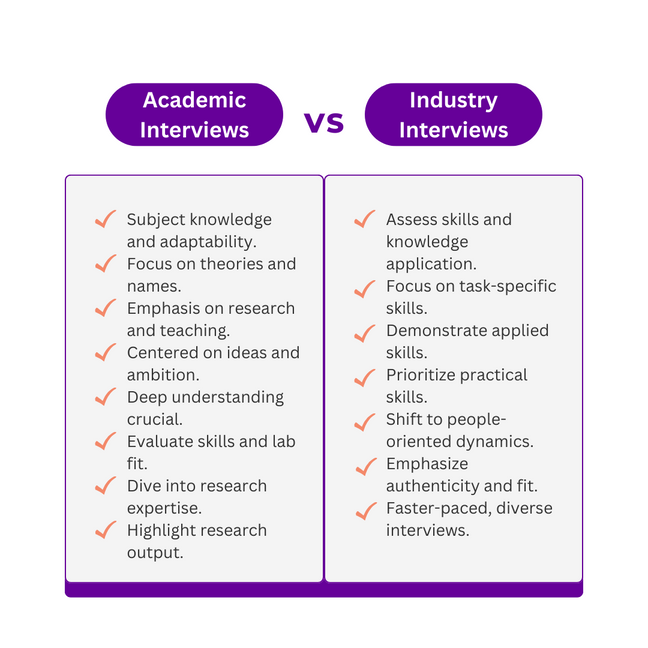
Acing the Interview
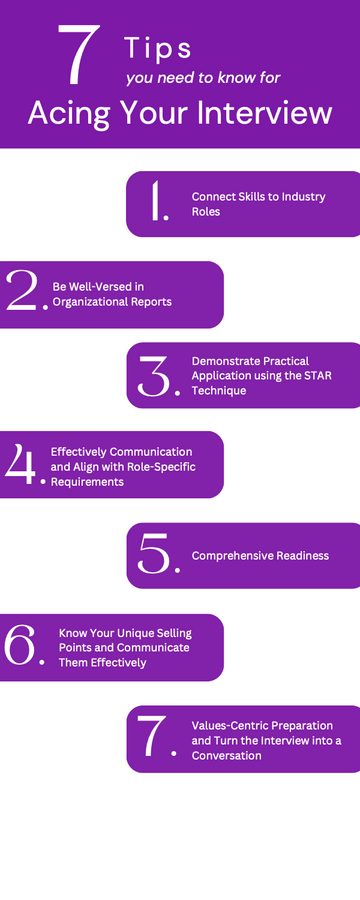
Embarking on a career beyond academia requires a strategic approach to interviews. Our alumni share valuable insights and tips on how they prepared for non-academic interviews:
Successfully preparing for non-academic interviews involves several key strategies. It starts with emphasizing the importance of linking academic skills directly to the role, showcasing practical applications beyond theoretical knowledge. Drawing from experience in research-intensive roles becomes crucial, highlighting the need to understand key reports and anticipate questions based on the interviewer's background. The chosen strategy includes showcasing skills through real-world examples, using the Situation, Task, Action, Result (STAR) framework to illustrate the practical application of academic knowledge. Crafting a small presentation relevant to the role is advocated, ensuring effective communication and alignment with specific job requirements. Thorough company understanding, along with refining technical skills and preparing for competency-based questions, is stressed to ensure comprehensive readiness. Understanding and effectively communicating unique value are crucial aspects, with an emphasis on integrity throughout the interview process. This values-centric approach is further emphasized by ensuring personal values align with the company's, turning the interview into a meaningful dialogue beyond a mere question-and-answer session. In conclusion, these strategies collectively offer a comprehensive guide for individuals with a PhD background navigating non-academic interviews, providing strategic insights and practical tips for success in diverse career paths. The overarching theme underscores the importance of showcasing practical applications, effective communication, and values-centric preparation throughout the interview process.
In conclusion, these talking points offer a comprehensive guide for PhD alumni navigating non-academic interviews. They provide strategic insights and practical tips for success in diverse career paths, emphasizing the importance of showcasing practical applications, effective communication, and values-centric preparation.
Art of the Deal: Strategies for Successful Salary Negotiations
Navigating the intricacies of salary negotiations can often feel like a high-stakes game, especially for PhD graduates stepping into new professional roles. Drawing from the experiences of our alumni, we uncover a wealth of strategies and insights that pave the way for successful negotiations during the job interview process.
Take Aaron, for instance, whose negotiation tactics revolved around showcasing his extensive experience as a postdoctoral researcher and lecturer, alongside his technical prowess. His key to success? Highlighting the unique value he brought to the table. Then there's Francisco, who sheds light on the nuances of negotiating in both academic and non-academic spheres. While academia may offer limited room for negotiation early on due to standardized candidate profiles, understanding market rates becomes paramount in non-academic roles. Laura, although not personally involved in salary negotiations for her current role, shares invaluable insights gained from managing successful negotiations for others. She emphasizes the pivotal role experience plays in crafting effective negotiation strategies tailored to individual skills and expertise. Mutasem advocates for a realistic and flexible approach, starting with the average market salary and adjusting based on role specifics post-technical interviews. Understanding the company's financial landscape and balancing personal needs with organizational dynamics is key. Peslie-Ngambi stresses the importance of gauging one's worth against industry standards and effectively communicating unique skills during negotiations.
Phavit advises candidates to navigate negotiations with sensitivity, particularly in academia where funding constraints may apply, while gradually adopting a more assertive stance in later industry roles. Sam Lynch's journey underscores the significance of balancing salary considerations with opportunities for skill development, advocating for assertiveness as one's value and performance grow. Sonia, pragmatic in her approach, underscores the power of being well-informed and realistic, emphasizing open and direct discussions to gauge possibilities within the company. Her personal experience highlights the value of being straightforward during negotiations, anchoring requests in performance and market rates while maintaining realistic expectations. In essence, these diverse perspectives offer a comprehensive roadmap for navigating the labyrinth of salary negotiations. Whether in academia or the dynamic landscape of non-academic industries, demonstrating value, understanding market dynamics, and striking a balance between assertiveness and realism emerge as central tenets for negotiation success.
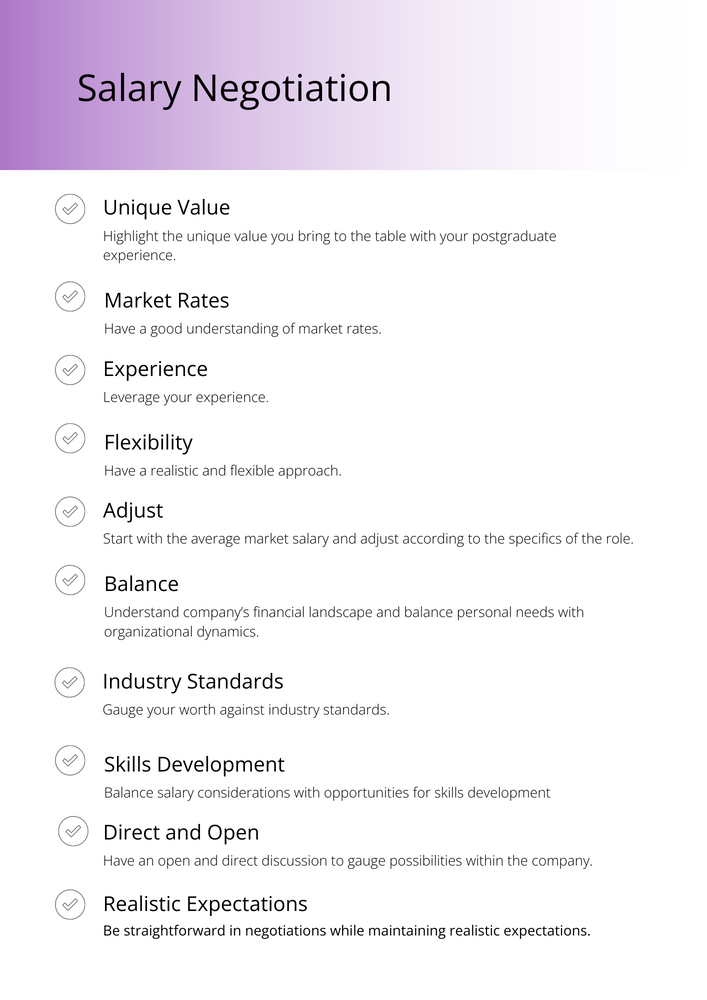
Excelling as a Postgraduate Researcher in Interviews
Embarking on the journey post-PhD isn't merely about acquiring a title; it's about harnessing a unique skill set and knowledge base. In this blog, we'll delve into the power of PhD skills that not only help individuals stand out during interviews but also continue to shape their post-graduation endeavours. Let's hear from our alumni about their perspectives on these invaluable skills:
Chris's transition from researcher to entrepreneur seamlessly integrates his skills. Problem-solving and creative thinking, honed during his PhD, play a vital role in running his startup. His experience in funding proposals and software development directly contributes to his entrepreneurial role at Guru.
Francisco emphasizes the enduring value of quantitative skills acquired during postgraduate education, particularly in economics and coding. His ability to articulate complex ideas, a skill finely honed during his PhD, is a cornerstone of his current role.
Laura's skill set extends beyond academia, encompassing critical abilities like fact-finding, networking, and planning. Her experience in organizing conferences showcases her prowess in relationship management and meeting deadlines.
For Mutasem, research innovation and knowledge transfer form the bedrock of his success. The ability to generate novel ideas and articulate them effectively, combined with experience as a teaching assistant, highlights the importance of committing to both learning and imparting knowledge.
The transition from academia to industry is navigated skillfully by Peslie-Ngambi. Leveraging experience in health economics from both realms, He seamlessly integrates his roles, working for a medical device company and teaching master's students.
Phavit emphasizes the role of softer skills in standing out. People skills, project management, and time management, especially gained through industry experience, are crucial. His advice includes active participation in extracurricular activities, teaching, or department committees to enhance post-graduation skills.
Sam Lynch's journey underscores the importance of resilience and adaptability. Whether changing a business plan or research direction, the ability to evolve is a crucial skill developed during her PhD, proving pivotal in both academic and entrepreneurial ventures.
Sonia's experience highlights the key role of technical proficiency. The ability to dive into complex technical matters and present them simply is paramount. Her PhD training in consuming information quickly, problem-solving, and critical thinking directly contributes to her current role in software and project management.
In conclusion, the journey post-PhD is not just a transition—it's a continuation of a skill set cultivated during intense research endeavors. The ability to problem-solve, articulate complex ideas, and adapt to evolving landscapes positions these alumni as not just job seekers but as contributors to the ever-changing professional landscape.
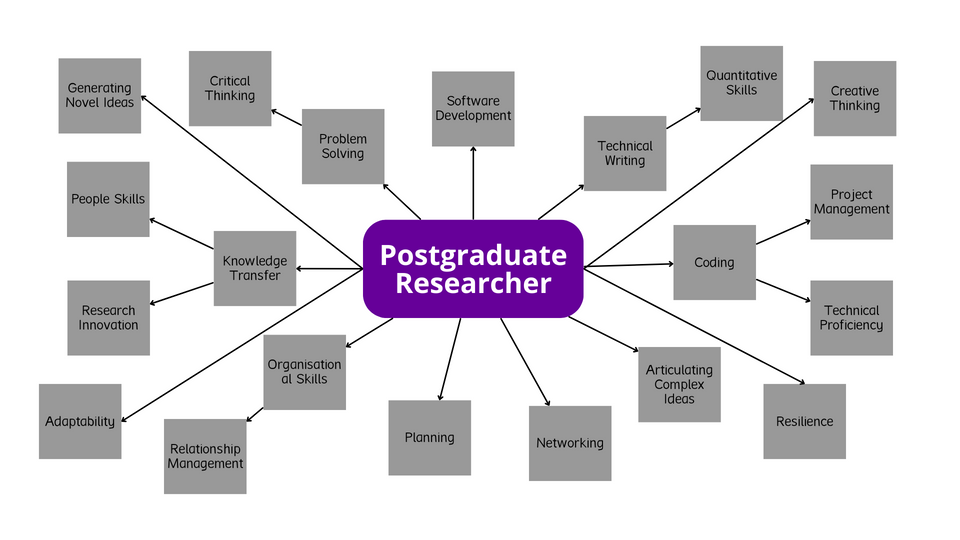
Navigating Stereotypes: PhD Holders Breaking the Mold
PhD holders often find themselves navigating through misconceptions and stereotypes during the interview process. Our alumni share their experiences, addressing and challenging these stereotypes to pave the way for a more nuanced understanding of their capabilities. Chris's journey, straddling both arts and computer science, challenges the stereotype that arts PhDs may be less practical. He emphasizes the beneficial perspective of creativity and artistry, especially in fields like virtual reality, showcasing the interdisciplinary advantage. Laura sheds light on the misconception that PhD holders lack practical experience or won't commit to non-academic roles. Her approach involves
Phavit tackles the bias that researchers may not manage conflict well. His advice is to address potential stereotypes directly during interviews.
Recognising that interviewers have specific
expectations for different roles, he emphasises the importance of focusing on skill sets relevant to the position.
“actively engaging with the role and articulating the reasons behind the desire to pursue it, dispelling notions of detachment.”
Sam Lynch's experience reflects the challenge of fitting into the academic stereotype due to a non-academic background. Overcoming this involved
Sonia confronts the common misconception that PhD holders lack practical experience. Her strategy involves explicitly highlighting achievements and experiences in her CV and interviews, demonstrating the tangible application of her PhD work to real-world scenarios.
In conclusion, these PhD alumni stand as living examples of breaking through stereotypes. Their experiences challenge misconceptions about impracticality of arts PhDs, the lack of commitment in non-academic roles, conflict management abilities of researchers, and the notion that PhD holders lack practical experience. By actively addressing these stereotypes during interviews, they contribute to a broader understanding of the diverse skills and perspectives that PhD holders bring to the table.
I
“embracing her unique skills and experiences, realising that they added significant value to both her academic and professional capacities”

Unveiling Wisdom: Lessons From Memorable Interview Experiences


Chris: The Power of Rapport and Cultural Fit
Chris's memorable interview was marked by an immediate rapport with the panel. Laughter echoed, and the conversation flowed effortlessly, creating an atmosphere akin to friends catching up. This experience emphasised the importance of rapport and cultural fit, factors that played a crucial role in his decision-making process.

Laura: The Impact of Organizational Culture
For Laura, interviews have run the gamut from confrontational to encouraging. The most memorable ones were those where the organization's culture felt welcoming and supportive. The positive atmosphere made her eager to be part of the team, underscoring the impact of organizational culture on a candidate's experience.
Mutasem: Embracing Change as a Challenge
Mutasem's memorable experience extends beyond the interview room. Moving from North Africa to Asia presented a significant change, treated as a challenge rather than a hurdle. Additionally, an interview at Surrey University, marked by a barrage of technical questions, underscored the importance of technical preparedness.

Peslie-Ngambi: The Art of Conciseness and Adaptability
Peslie-Ngambi reflects on an academic interview where commendation met defeat against a more experienced candidate. This taught her the importance of being concise in interviews and adapting to different techniques. The experience highlighted the need for adaptability in navigating diverse interviewing scenarios.
Sonia: Focusing on the Right Fit

Sonia's experience, where a lack of innovation experience led to a project-related role slipping away, offered a profound lesson. It emphasized the importance of being focused and realistic about roles, acknowledging that it's not about inadequacy but finding the right fit for one's skills and experience.
Meet The Team
Meet the dynamic duo behind the scenes - Jess and Maryam, both second-year PhD students, have brought their passion for research and education to the forefront as interns with the Researcher Development Team. Tasked with conducting insightful interviews with postgraduate alumni, they delve into the wealth of experiences that shape academic journeys. Their mission doesn't end there; armed with invaluable insights, they craft tailored resources to empower current postgraduates on their own paths to success. With their dedication and expertise, Jess and Maryam are driving positive change and fostering a supportive community within academia.
Are you a University of Manchester postgraduate researcher alumni and think your unique academic journey would be beneficial for current and future researchers? We would love to hear from you! Get in touch with us to get your stories featured.
Contact Us
Phone
+44 (0) 161 306 6000
Address
The University of Manchester,Oxford Rd
Manchester, M13 9PL, UK
Website
Email
resdev@manchester.ac.uk
